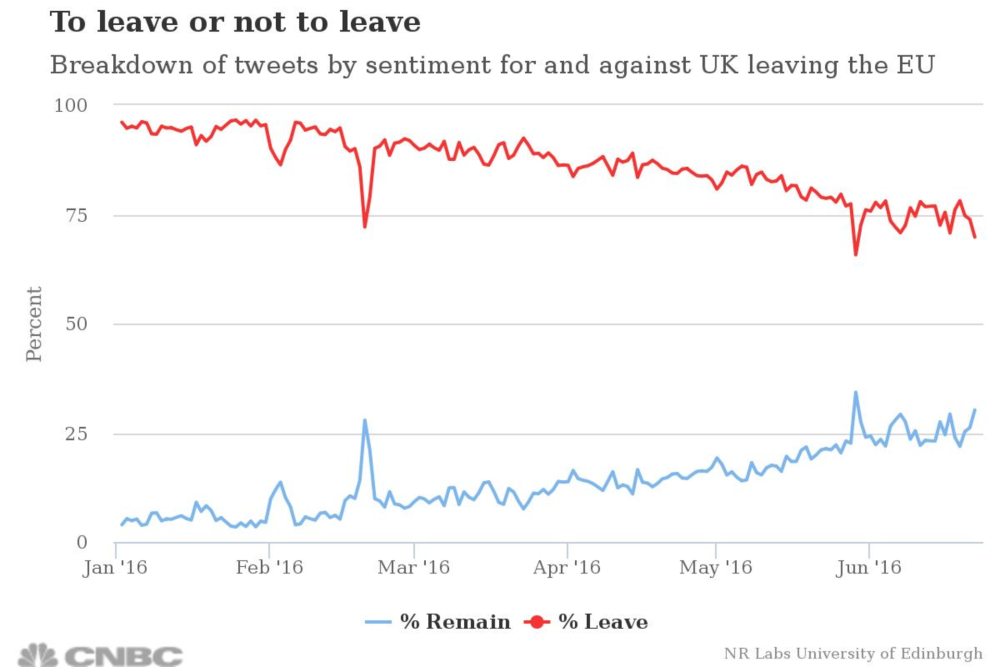If you spent any time on social media in the past 30 days, you have undoubtedly seen plenty of posts about Brexit, the now-confirmed decision for the UK to leave the European Union. Leaving aside what this is doing to the marketers and therefore corporate America (if you chose to watch the macabre show unfurling, click here), it’s valuable to do a postmortem on what social media told us about the vote and whether anything can be gleaned by that.
Confirmation bias
There is undoubtedly shock amongst the remain supporters, many of whom, judging by the breakdown of votes live in urban areas. For all of the talk about social media connecting disparate people, I can attest that my social feeds were filled with urban dwellers who pushed for stay in the run-up. Our own nodes in the vast social networks are still capable of cosseting us with similar opinion.
Signs all along?
As this NR Labs University of Edinburgh poll shows, Leave has constantly outpaced Stay in use of hashtags since August 2015. It’s interesting to note just how disparate the two sides were in the beginning. It likely follows the adage that people unhappy with the status quo are more likely to complain online. Perhaps (and I am reading into this) the Stays were convinced their position was so obviously the better one that they assumed. They only got more involved social when they saw remaining in the EU was not an inevitability.
Instagram Wanted to Leave Too
While Twitter is certainly what the news junkies use and follow, Instagram is still the dominate social network for young voters. And while the 75% of the youth voted to remain, leave-supporting hashtags were more popular on the site.
No Awards Forthcoming
Brexit postmortems claim that the marketing campaigns on behalf of both sides probably failed to convert either sides. The New York Times reported that the “Leave” were criticized for hyperbole and the “Stay” were ridiculed for being condescending. While they undoubtedly had impact – as all marketing does at least subconsciously – neither side have a great campaign to point to as a deciding factor.
Tropes to Retire
Here’s how the simple thought-process goes: if the youth are more likely to use social media. And the youth overwhelming voted to stay, then the preponderance of content online should have been related to stay. But it was not. Why? The reality is social media is such an extension of society that it doesn’t reflect any one type or group. And while it is a looking glass into what we, as a society, think, it is by no means an accurate predictor of what’s to come. If you want to know what is going to happen, follow the betting markets.







